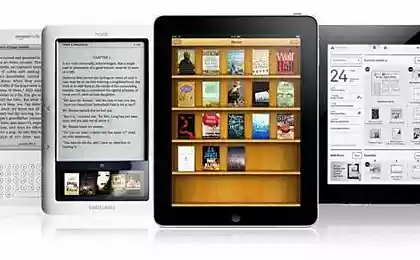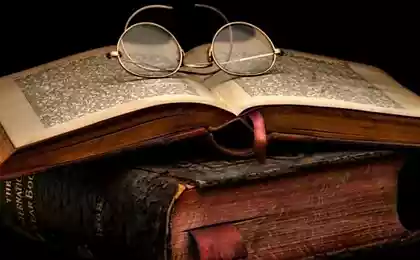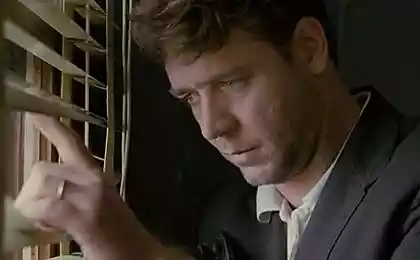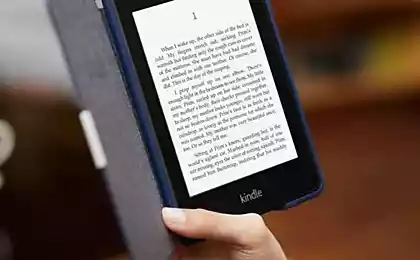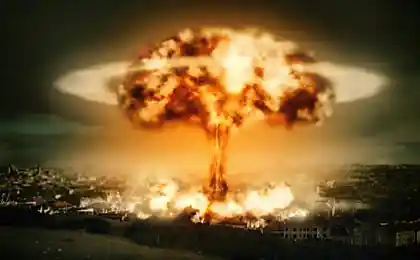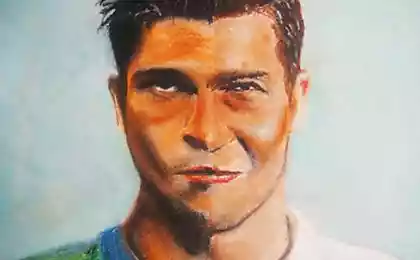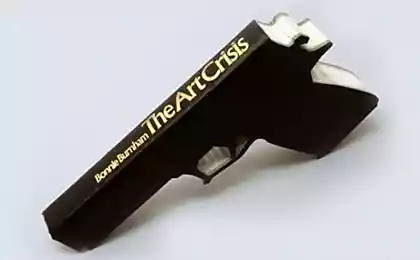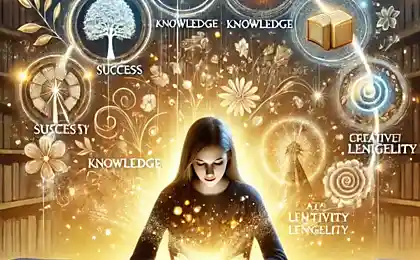778
15 books that predicted the future
Predicts whether science fiction inspires the future or future discoveries? When meeting with any of these books, where bionic implants and tablets was described decades or even centuries ago, the reader inevitably arises the question.
We have gathered for you the examples of works whose authors how the water looked.
1. Jonathan swift in "Gulliver's Travels" predicted the discovery of the two moons of Mars

In this satirical work of 1726 tells about a man named Gulliver who travels through different worlds. For example, one of them is inhabited by Lilliputians, and the other giants. When Gulliver is on the island of Laputa, local astronomers noticed that the orbit of Mars two moons revolve. More than 150 years later, in 1877, it was discovered that Mars has two satellites Phobos and Deimos.
2. Mary Shelley in "Frankenstein," predicted modern transplants

In 1818, when Shelley wrote "Frankenstein, or the Modern Prometheus", science was just beginning to explore a new area: the reanimation of dead tissue using electricity. And, although the methods of the time were, to put it mildly, a little rough, they paved the way for future medical breakthroughs, including organ transplants, of which Shelley wrote.
3. Jules Verne in "Twenty thousand leagues under the sea" predicted electric submarine
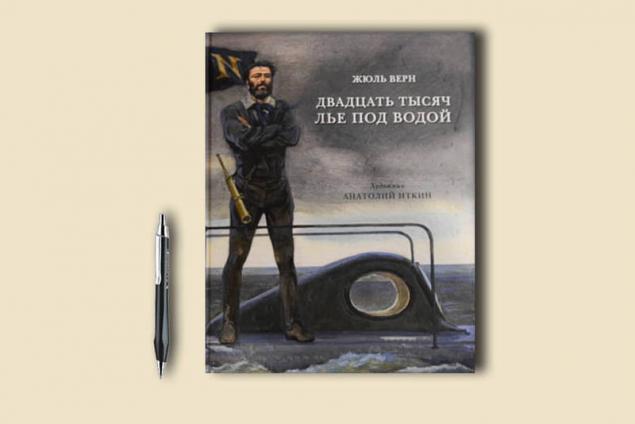
Jules Verne — one of the most famous visionaries of the nineteenth century. He made many successful predictions, from lunar modules, to solar sails for more than a hundred years before the actual discovery. However, his most famous book is "Twenty thousand leagues under the sea". The novel was published in 1870, and in it, 90 years before the invention has been described an electric submarine.
4. Edward Bellamy in "Looking backward" predicted credit card

For 63 years to the creation of credit cards in 1888 Bellamy published the novel-utopia "looking back 2000-1887" (eng. Looking Backward, 2000-1887; in Russian was published under the name "2000"; "the Golden age"; "the Future age"; "in a hundred years"). Julian West falls asleep for 113 years, and waking up in the year 2000, he discovers that to buy goods all use so-called "credit" cards.
5. Hugo Gernsback in the novel "Ralph 124C 41+" has predicted solar energy
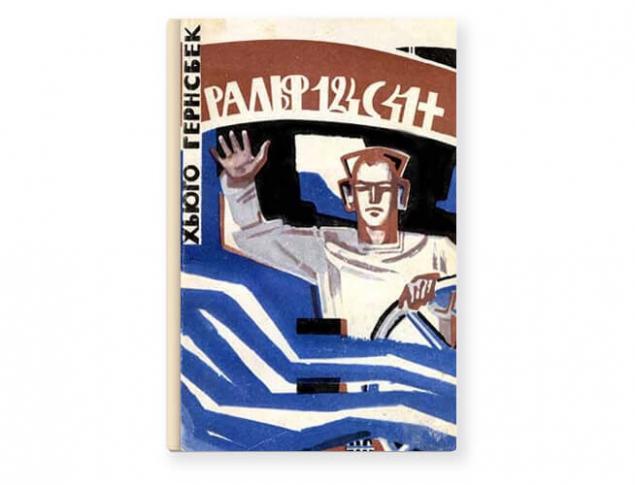
This early novel by Gernsback — the man in whose honor was named the most famous science fiction Book award Hugo Awards, was written in 1911, but its action takes place in 2660-m. novel predicted solar power, televisions, tape recorders, sound movies, and space travel.
6. H. G. wells in the "Liberated world" predicted the atomic bomb

His novel "Liberated world", published in 1914, H. G. wells not only predicted nuclear weapons, but might have applied to Dr. Leo Silard first rasipuram atom, the idea of the destructive atomic bomb. In the universe of wells atomic bomb was a hand grenade uranium, that is, a conventional bomb with the addition of radioactivity. Science came to this idea only after thirty years.
7. Huxley's novel "brave new world" predicted a pill, enhance mood

This grim novel of drug addicts draws a capitalist society that puts freedom above sexual monogamy, and divides people into castes. In his book, 1931, Huxley foresaw the use of pills that increase mood as well as reproductive technology and the problem of overcrowding.
8. George Orwell "1984" predicted Big brother and mass surveillance

In his classic dystopian Orwell first introduces concepts such as "Big brother", "doublethink", "Newspeak" and "thought police". In the novel, 1949, shows the dark world in four decades after the Second world war. There is much talk about censorship, propaganda, and oppressive government of the future. Orwell also predicted a massive video surveillance and police helicopters.
9. Ray Bradbury "451 degrees Fahrenheit" predicted in-ear headphones

This iconic book was written in 1953. It tells the story of a technologically advanced society where books are outlawed and any discovered book should be burned. In the dystopia described, in particular, flat TVs, and portable radios, in the sense similar to in-ear headphones and Bluetooth headsets.
10. Robert Heinlein in "Stranger in a strange land" predicted water mattress

The hero of this novel, 1961, Valentine Michael Smith, raised on Mars and raised by Martians, comes to Earth. In addition to discussions of intergalactic politics and other sensitive subjects, the author predicted modern waterbeds for decades before their invention.
11. Arthur C. Clarke "Space Odyssey" predicted the iPad
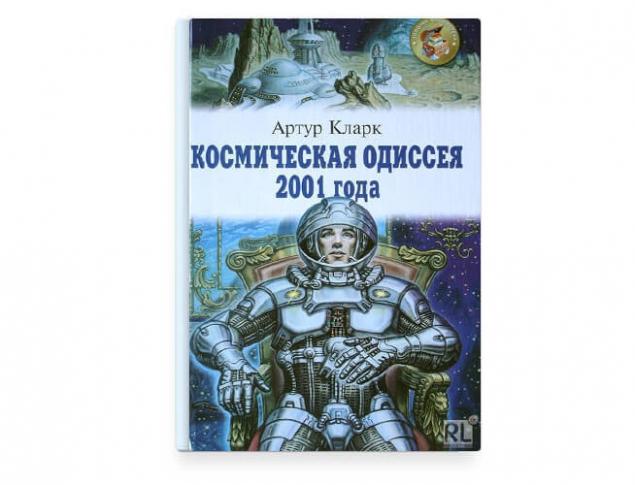
This book 1968 pen of Arthur C. Clarke about an alien civilization that creates intelligent life on Earth, replete with arguments about nuclear war, evolution and the dangers of artificial intelligence in the form of supercomputer HAL 9000. But the most accurate prediction was the description of electronic Newspapers, very similar to modern tablets.
12. John Brunner in "stand on Zanzibar" predicted satellite TV and electric vehicles

Dystopia of Brunner was first published in 1968. In addition to the realistic story, the book you can find a lot of examples of technologies that surround us today, including interactive and satellite TV, laser printers, electric cars, and even the decriminalization of marijuana.
13. Martin Caidin in "Cyborg" predicted bionic prostheses
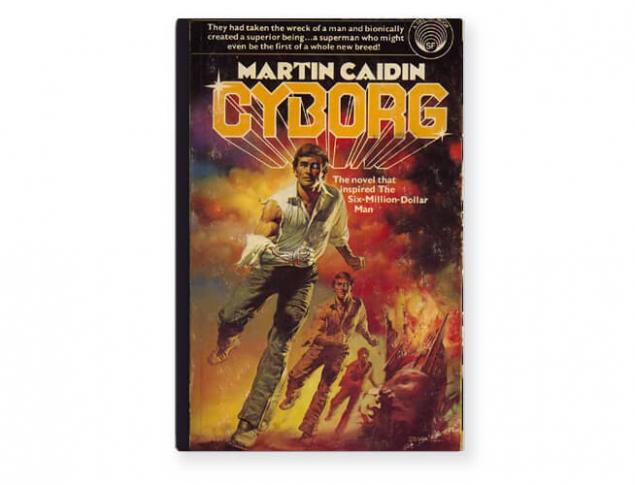
In this novel, 1972 former astronaut Steve Austin crashes, which loses all limbs except one, and blind in one eye. A team of scientists turns Austin into a cyborg: he makes a new legs, removable eye-camera and a bionic arm. At the time of publication of the book to the first successful transplantation of a bionic prosthetic hand remained for 41 years.
14. Douglas Adams in "Hitchhiker's guide to the galaxy" predicted the application for translation of speech
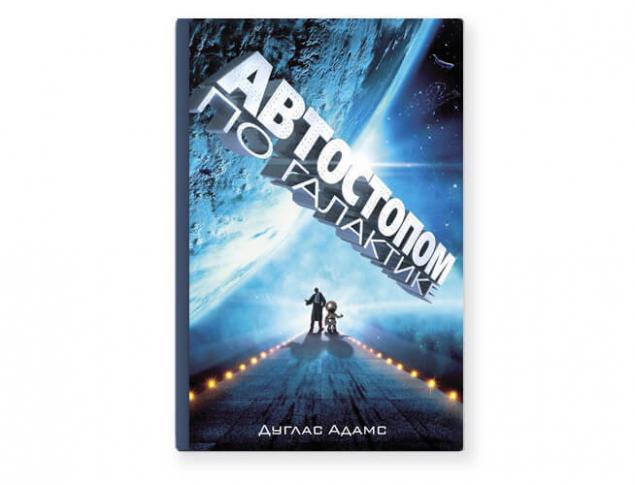
This book was published in 1971. Arthur dent gets from his friend Ford Prefect, a secret correspondent of interstellar travel guide "Hitchhiker's guide to the Galaxy" — information that the Earth is about to be destroyed. Steam escapes, making his way to the spaceship, and begins their strange journey through the Universe. In the course of action the protagonist is faced with the universal translator of the question, which now, 34 years later, became a reality.
15. William Gibson in "Neuromancer" predicted cyberspace and computer hackers
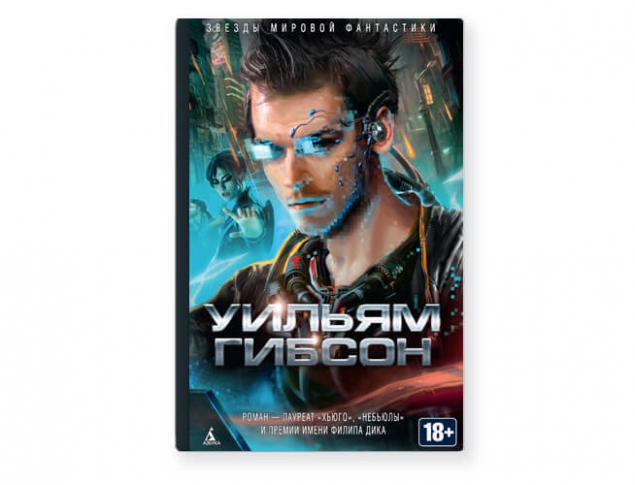
In this action-Packed crime novel, 1984 tells the story of the fallen hacker and a black hat who heals and restores the ability to go into cyberspace. "Neuromancer" not only became the first novel to win all three of sci-Fi award ("Hugo," "nebula" and the award of a Philip K. dick), and was inspired by the then Wachowski brothers to create the movie "the Matrix", but also predicted the advent of cyberspace and computer hackers. published
P. S. And remember, only by changing their consumption — together we change the world! ©
Join us in Facebook , Vkontakte, Odnoklassniki
Source: insider.pro/EN/article/70428/
We have gathered for you the examples of works whose authors how the water looked.
1. Jonathan swift in "Gulliver's Travels" predicted the discovery of the two moons of Mars

In this satirical work of 1726 tells about a man named Gulliver who travels through different worlds. For example, one of them is inhabited by Lilliputians, and the other giants. When Gulliver is on the island of Laputa, local astronomers noticed that the orbit of Mars two moons revolve. More than 150 years later, in 1877, it was discovered that Mars has two satellites Phobos and Deimos.
2. Mary Shelley in "Frankenstein," predicted modern transplants

In 1818, when Shelley wrote "Frankenstein, or the Modern Prometheus", science was just beginning to explore a new area: the reanimation of dead tissue using electricity. And, although the methods of the time were, to put it mildly, a little rough, they paved the way for future medical breakthroughs, including organ transplants, of which Shelley wrote.
3. Jules Verne in "Twenty thousand leagues under the sea" predicted electric submarine

Jules Verne — one of the most famous visionaries of the nineteenth century. He made many successful predictions, from lunar modules, to solar sails for more than a hundred years before the actual discovery. However, his most famous book is "Twenty thousand leagues under the sea". The novel was published in 1870, and in it, 90 years before the invention has been described an electric submarine.
4. Edward Bellamy in "Looking backward" predicted credit card

For 63 years to the creation of credit cards in 1888 Bellamy published the novel-utopia "looking back 2000-1887" (eng. Looking Backward, 2000-1887; in Russian was published under the name "2000"; "the Golden age"; "the Future age"; "in a hundred years"). Julian West falls asleep for 113 years, and waking up in the year 2000, he discovers that to buy goods all use so-called "credit" cards.
5. Hugo Gernsback in the novel "Ralph 124C 41+" has predicted solar energy

This early novel by Gernsback — the man in whose honor was named the most famous science fiction Book award Hugo Awards, was written in 1911, but its action takes place in 2660-m. novel predicted solar power, televisions, tape recorders, sound movies, and space travel.
6. H. G. wells in the "Liberated world" predicted the atomic bomb

His novel "Liberated world", published in 1914, H. G. wells not only predicted nuclear weapons, but might have applied to Dr. Leo Silard first rasipuram atom, the idea of the destructive atomic bomb. In the universe of wells atomic bomb was a hand grenade uranium, that is, a conventional bomb with the addition of radioactivity. Science came to this idea only after thirty years.
7. Huxley's novel "brave new world" predicted a pill, enhance mood

This grim novel of drug addicts draws a capitalist society that puts freedom above sexual monogamy, and divides people into castes. In his book, 1931, Huxley foresaw the use of pills that increase mood as well as reproductive technology and the problem of overcrowding.
8. George Orwell "1984" predicted Big brother and mass surveillance

In his classic dystopian Orwell first introduces concepts such as "Big brother", "doublethink", "Newspeak" and "thought police". In the novel, 1949, shows the dark world in four decades after the Second world war. There is much talk about censorship, propaganda, and oppressive government of the future. Orwell also predicted a massive video surveillance and police helicopters.
9. Ray Bradbury "451 degrees Fahrenheit" predicted in-ear headphones

This iconic book was written in 1953. It tells the story of a technologically advanced society where books are outlawed and any discovered book should be burned. In the dystopia described, in particular, flat TVs, and portable radios, in the sense similar to in-ear headphones and Bluetooth headsets.
10. Robert Heinlein in "Stranger in a strange land" predicted water mattress

The hero of this novel, 1961, Valentine Michael Smith, raised on Mars and raised by Martians, comes to Earth. In addition to discussions of intergalactic politics and other sensitive subjects, the author predicted modern waterbeds for decades before their invention.
11. Arthur C. Clarke "Space Odyssey" predicted the iPad

This book 1968 pen of Arthur C. Clarke about an alien civilization that creates intelligent life on Earth, replete with arguments about nuclear war, evolution and the dangers of artificial intelligence in the form of supercomputer HAL 9000. But the most accurate prediction was the description of electronic Newspapers, very similar to modern tablets.
12. John Brunner in "stand on Zanzibar" predicted satellite TV and electric vehicles

Dystopia of Brunner was first published in 1968. In addition to the realistic story, the book you can find a lot of examples of technologies that surround us today, including interactive and satellite TV, laser printers, electric cars, and even the decriminalization of marijuana.
13. Martin Caidin in "Cyborg" predicted bionic prostheses

In this novel, 1972 former astronaut Steve Austin crashes, which loses all limbs except one, and blind in one eye. A team of scientists turns Austin into a cyborg: he makes a new legs, removable eye-camera and a bionic arm. At the time of publication of the book to the first successful transplantation of a bionic prosthetic hand remained for 41 years.
14. Douglas Adams in "Hitchhiker's guide to the galaxy" predicted the application for translation of speech

This book was published in 1971. Arthur dent gets from his friend Ford Prefect, a secret correspondent of interstellar travel guide "Hitchhiker's guide to the Galaxy" — information that the Earth is about to be destroyed. Steam escapes, making his way to the spaceship, and begins their strange journey through the Universe. In the course of action the protagonist is faced with the universal translator of the question, which now, 34 years later, became a reality.
15. William Gibson in "Neuromancer" predicted cyberspace and computer hackers

In this action-Packed crime novel, 1984 tells the story of the fallen hacker and a black hat who heals and restores the ability to go into cyberspace. "Neuromancer" not only became the first novel to win all three of sci-Fi award ("Hugo," "nebula" and the award of a Philip K. dick), and was inspired by the then Wachowski brothers to create the movie "the Matrix", but also predicted the advent of cyberspace and computer hackers. published
P. S. And remember, only by changing their consumption — together we change the world! ©
Join us in Facebook , Vkontakte, Odnoklassniki
Source: insider.pro/EN/article/70428/
BIOCHEMICAL LAZINESS — why would we not want to do useful things
Strengthen the muscles: 5-minute exercises for Mueller




